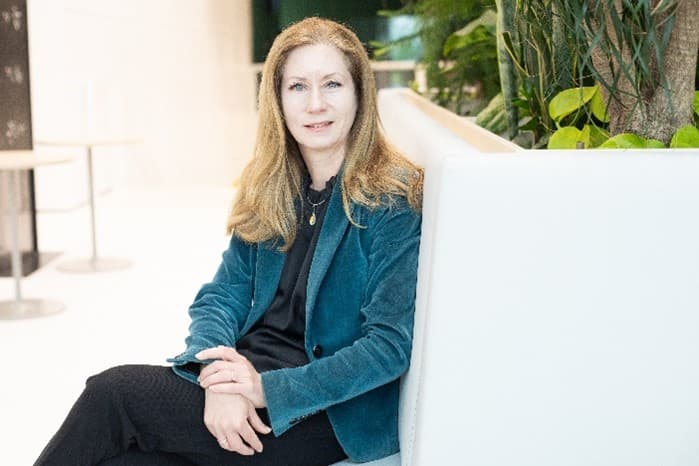Beyond compliance: Companies must lead the circular transition
Sustainability reporting isn't just a checklist — it's a catalyst for systemic change. Dutch innovative businesses must embrace this shift.
Published on June 9, 2025
.jpg&w=2048&q=75)
Fontys Rachelsmolen Eindhoven
Bart, co-founder of Media52 and Professor of Journalism oversees IO+, events, and Laio. A journalist at heart, he keeps writing as many stories as possible.
Sustainability has long been treated as a compliance task — a report to file, a metric to check off. But according to Dr. Biljana Pesalj, Professor of Circular Transitions at Fontys University of Applied Sciences, that mindset is not only outdated, it’s dangerous. “Sustainability reporting is not a checklist,” she says, “it’s a roadmap to sustainable business and a new economy.” Pesalj makes the case that businesses - especially in forward-looking regions like Brainport Eindhoven - must take the lead in transforming sustainability from paperwork into purpose. Next week, she will give her public inaugural lecture at Fontys University of Applied Sciences in Eindhoven.
As the EU’s Corporate Sustainability Reporting Directive (CSRD) expands its reach, hundreds of Dutch companies now face new requirements to map and disclose their environmental and social impact. While this appears to be progress, Pesalj cautions against a narrow interpretation of these rules. “Visibility should not be confused with transformation,” she warns. “If we treat sustainability reporting as an administrative obligation rather than a strategic compass, we risk missing the point.”
This is not just about ticking boxes. It’s about rethinking value, from the ground up. Pesalj argues that even green technologies, if not applied systemically, can become part of the problem. “Innovation is too often used not to redesign the system, but to make the current system run faster and cleaner. It sounds smart. It feels innovative. But in reality, it delays the deep, structural change we need.”

Biljana Pesalj
She describes this dynamic as Greenwashing 2.0 - the appearance of progress without real transition. A telling example is the waste-resource paradox: when well-meaning recycling initiatives end up prolonging a fundamentally extractive, linear economy. “We can’t afford to get stuck in transition traps,” says Pesalj. “The climate crisis, social fragmentation, and biodiversity collapse require not just better business, but different business - and a different economic system.”
From value extraction to value creation
At the Circular Transition Professorship, Pesalj and her team are tackling these challenges head-on. Their research agenda revolves around one central question: How do we move from value extraction to value creation - socially, environmentally, and economically - across entire value chains?
Inaugural Lecturs on June 16
On June 16, 2025, Biljana Pešalj will deliver her inaugural lecture. Biljana will subsequently be installed as professor of Circular Transitions at the Fontys School of Business and Communication. More information here.
Three research lines guide this mission:
- Redefining the Bottom Line
“We investigate how companies can balance financial, social, and environmental performance over time,” Pesalj explains. The goal is not simply to report on sustainability, but to embed it into governance and strategic decision-making. - From Strategy to Systems
“Ambition is growing, but execution often falters.” Pesalj’s team studies how existing tools, from procurement to product design, can be recalibrated to support sustainable outcomes at all organizational levels. - Empowering People
“No transition happens without people,” she says. Culture, leadership, and incentives must align to promote sustainable behavior and creativity across departments, sectors, and value chains.
Brainport: Innovation with blind spots?
Nowhere is this more urgent than in Brainport Eindhoven, a region celebrated for high-tech innovation. But Pesalj sees missed opportunities when it comes to the circular economy and inclusive prosperity. “Brainport has all the ingredients to lead: talent, infrastructure, and cross-sector partnerships. But we still treat sustainability as one of many priorities, rather than the foundation for long-term resilience and relevance.”
The result? “Fragmented initiatives, slow adoption, and much talk with too little leverage.”
What needs to happen now
According to Pesalj, the path forward requires commitment across all levels of society:
- National policymakers should stop treating sustainability reporting as red tape and start linking it to policy instruments: market valuation, tax reform, procurement, and innovation subsidies.
- Businesses must bring sustainability out of the CSR silo and into the boardroom. “It must become the default in procurement, innovation strategy, and supply chain collaboration,” says Pesalj. That means creating space for radical, long-term innovation, not just incremental improvements.
- Regional ecosystems should embed circularity and social value into cluster collaboration, education, and public-private partnerships.
- Knowledge institutions must play their part by connecting science, education, and business. “If we don’t step up, we fail to equip the next generation to lead this change; we send them into outdated systems with outdated tools.”
Encouragingly, there are already examples of progress. “Companies like ASML are pushing beyond compliance,” says Pesalj. “Startups are pioneering innovative circular models. Twelve Universities of Applied Science have joined forces to launch a nationwide interdisciplinary master’s program in Sustainability Transitions.”
But she cautions that these efforts must not remain on the margins. “These examples must move from niche to norm.”
From reports to real change
“Sustainability reporting is not the goal in itself,” Pesalj writes. “It's the invitation to reflect and act.” Only when impact is measured and disclosed transparently can the real work begin: taking corrective, collaborative action.
And that, she argues, is the essence of true leadership: not in what’s written in reports, but in how organizations choose to reinvent themselves and the economy around them.
